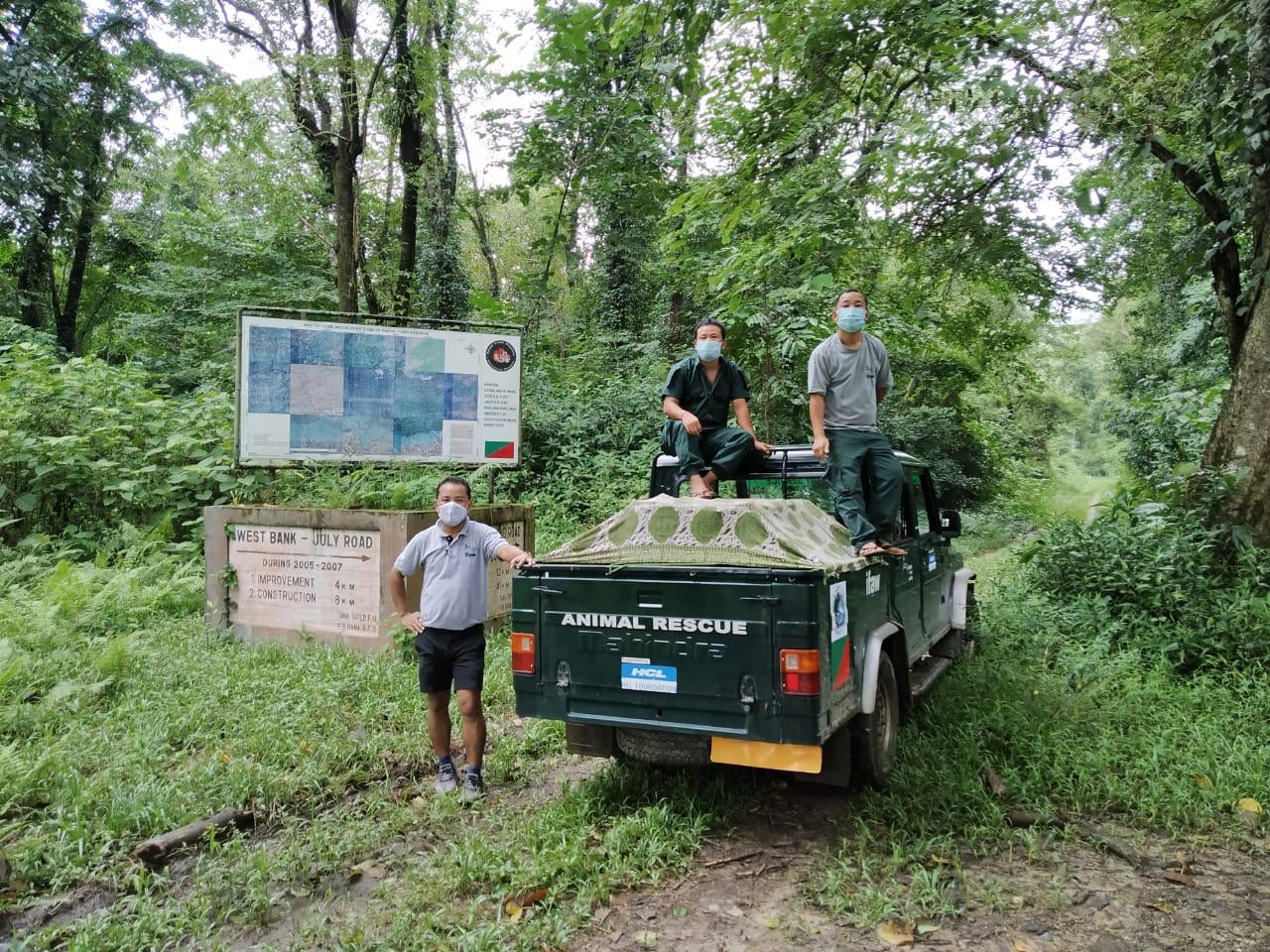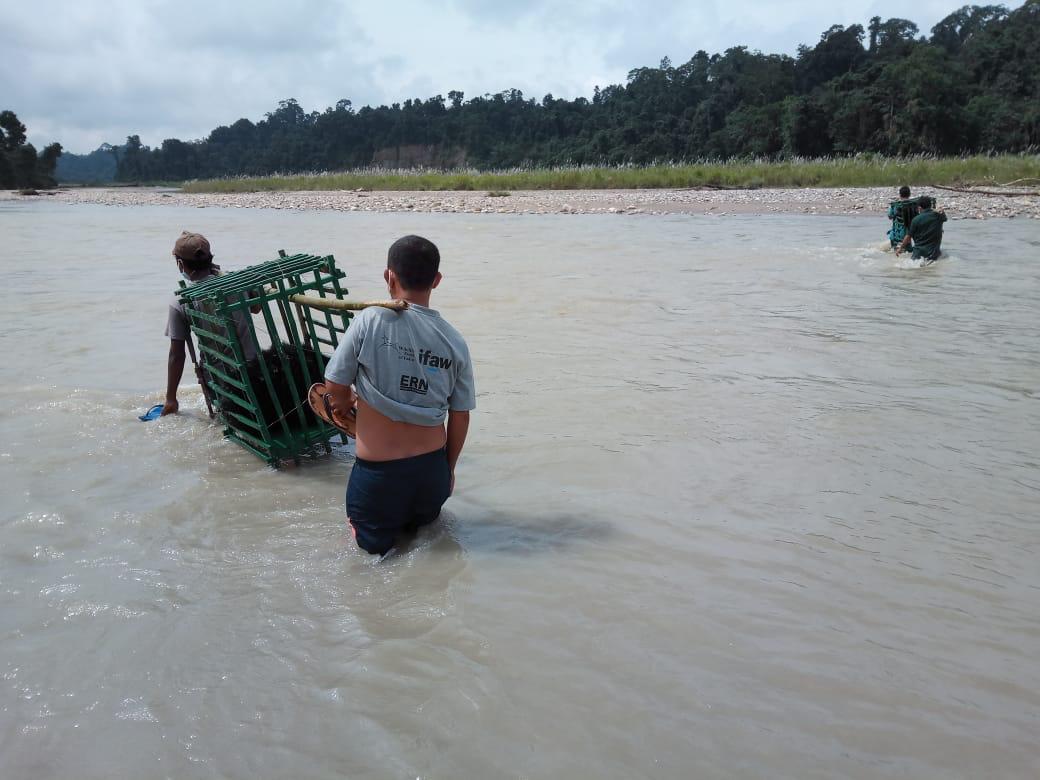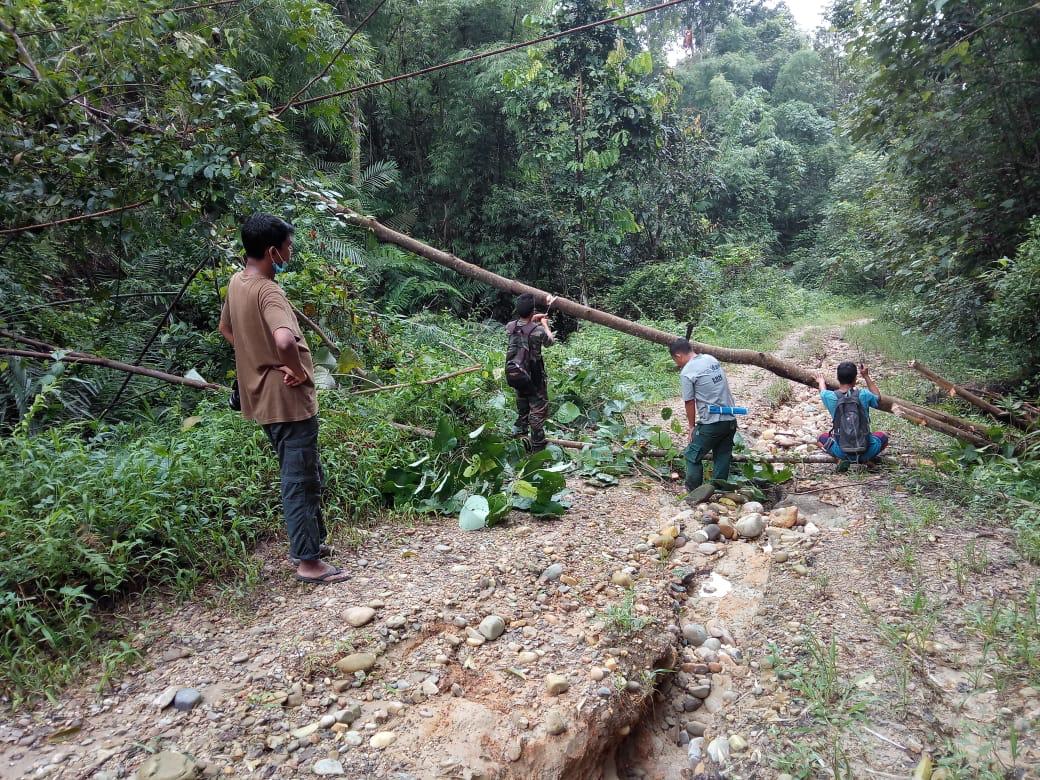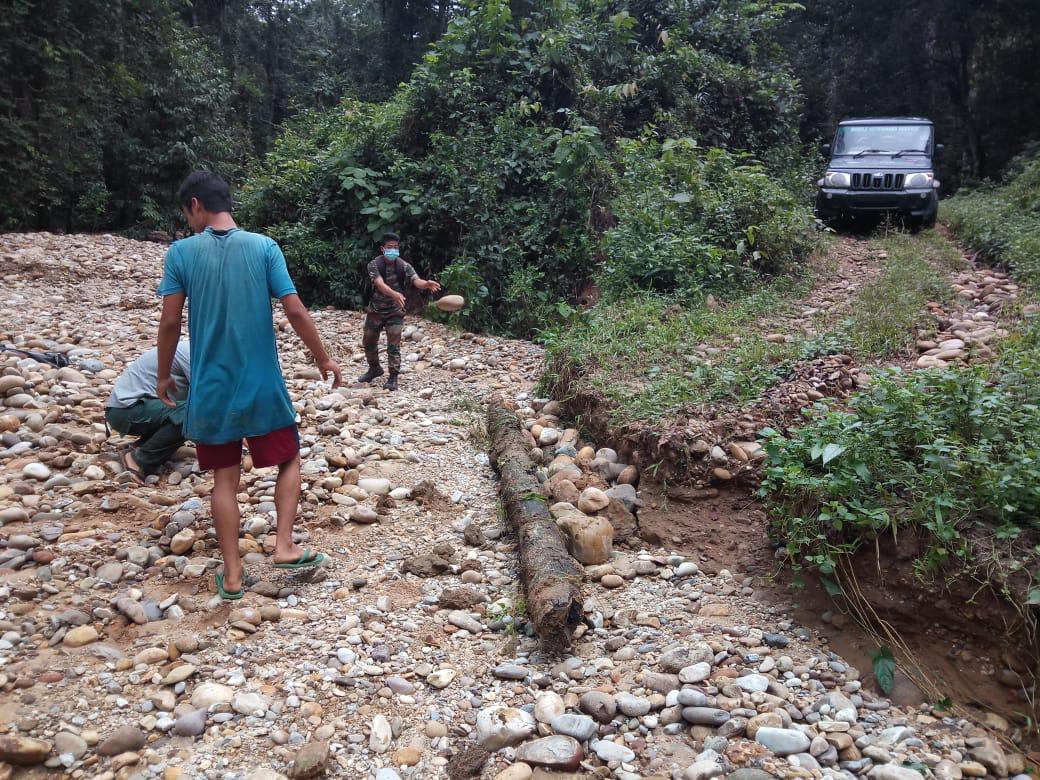Rescued Bear Cubs in Pakke Rehab Centre get ready to be released back in the Wild
Pakke, Arunachal Pradesh, 6 October 2020:
The distressed bear cubs rescued by IFAW-WTI-Arunachal Pradesh Forest Team and brought to the Centre for Bear Rehabilitation and Conservation (CBRC) in August have recovered well since their rescue and have bonded together as well.
The two cubs, Loki, rescued from Pasighat, Arunachal Pradesh and Hela, from Patgaon Forest village, West Kamrup Forest Range, Assam are now being prepared for a release back to the wild, under established protocols.
Under the established bear rehabilitation protocols, hand raised bear cubs are exposed to wilderness to acclimatize them to their natural habitat before release. The two hand-raised bear cubs have now been housed in an acclimatization site deep inside the forest of Pakke TR for this process. Over the next couple of months, the team will take the bears for assisted walks in the forest where they will be taught to use their natural instinct to survive in the wild.

The release protocol adopted by the team involves soft acclimatization of the bear cubs to their natural habitat and this is being diligently followed. Since inception of the bear rehabilitation centre, 39 Asiatic black bears have been hand raised, rehabilitated and released back to the wild.
“I hope both the individual bears can learn wilderness skills soon” added Shri T. Pali, DFO Pakke Tiger Reserve.
The team had to brave the monsoons in the thickly forested and rugged terrain of Pakke during the release in terrain, physically carrying the bear translocation cages to the acclimatization site with no motor-able road access. It is imperative that the bears be acclimatized to learn the essential life skills needed to survive in the wild, independent of human assistance. This soft release method also helps in gradual weaning of the bear cubs from their foster animal keepers with whom they get attached while they are hand-raised in captivity, weaning them from this attachment is a part of the acclimatization protocol.

Additionally, these bear cubs had already spent some time under human care of villagers as a nationwide lockdown had delayed their translocation from under the care of the villagers to professional care at the Centre for Bear Rehabilitation and Conservation (CBRC), and hence extra care would have to be taken to ensure that they rehabilitate back to the wild successfully.

“The whole operation commencing from bringing the bear cubs to CBRC was undertaken amidst stringent lockdown protocols of both Assam and Arunachal Pradesh, but I am happy that we could pull this off and we will now release them back to the wild after their acclimatization” summarized Dr. Panjit Basumatary, wildlife vet (WTI) adding that the final release will be done after radio collaring them and that post release monitoring by WTI’s biologist shall continue, to ensure that the bears have adapted well in their natural habitat.

This bear rehabilitation centre at Pakke is run under the aegis of the Arunachal Forest Department and has recently found support from Kirloskar Ebara Pumps Ltd. It has rescued and rehabilitated 39 bears back to the wild since its establishment in 2002.
If you liked reading this story, you might consider helping us in our efforts to keep wild forever wild by donating here https://donation.wti.org.in/









